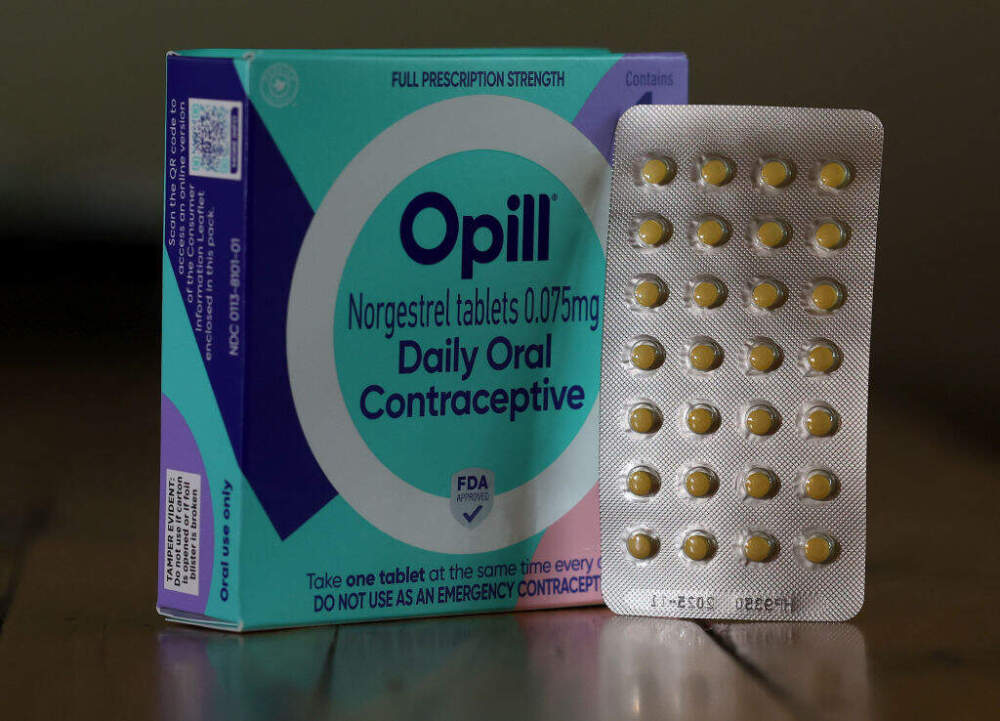Advertisement
Commentary
An over-the-counter birth control pill is a big win for contraceptive care — but women need more options
Earlier this year, a dream almost two decades in the making became reality: Anyone can now walk into a drugstore and walk out with a safe, effective birth control pill without a prescription. Opill, the brand name for the new pill, is poised to improve birth control access. But it’s important that we are realistic about its potential impact.
Birth control access in the United States remains startlingly bleak at a time when the need for contraception couldn’t be more urgent. A county needs to have at least one provider or health center per 1,000 women to meet the needs of women who qualify for publicly funded contraception. Counties that don't meet this criterion are considered “contraceptive deserts”. An estimated 19 million women between the ages of 13 and 44 live in a contraceptive desert. Meanwhile, since Roe v. Wade was overturned, 21 states have banned or severely restricted access to abortion. A recent JAMA Health Forum paper found that tubal ligations and vasectomies (permanent forms of birth control) abruptly increased in the month following the the U.S. Supreme Court's June 2022 decision, which ended the constitutional right to an abortion, suggesting the lengths people are willing to go for effective options.
A readily available over-the-counter (OTC) birth control pill is a great thing, of course, and Opill will be a lifeline for many in our tangled health system. Instead of fighting to get an appointment with an overbooked provider, waiting for that appointment, taking time off from work or school to go to that appointment—a process that can take weeks or months in some places—people can now buy an effective birth control pill the same way they buy antacids. It’s a significant change, one that was hard won by a coalition of advocates, drug manufacturers and healthcare providers.

Despite this progress, we can and must go further. The OTC pill is mostly a stopgap option, not a panacea. It may be perfect for some, but for many it’s unlikely to meet all their needs.
For starters, there’s the cost: Opill costs roughly $19.99 for a one-month supply and $49.99 for a three-month supply. Young people, those who lack access to providers or who do not feel safe visiting a doctor’s office, and people without health insurance are among the most likely users of Opill, and many of them won’t be able to afford it. (While there are ways to get your insurance to cover Opill, the process is not straightforward)
But more than that, we know that a daily oral contraceptive, whether it’s OTC or prescribed, isn’t for everyone.
One of the biggest myths to contend with in a post-Roe America is that there is some sort of one-size-fits-all birth control. On the contrary, research shows that people who are trying to avoid pregnancy are best served when they receive noncoercive, unbiased counseling regarding all FDA-approved methods of birth control. This type of care empowers people to choose what’s best for them based on their individual goals, needs and lifestyle, and results in more consistent and effective use of birth control.
Today, we know that roughly 1 in 4 women say they’re not using their preferred method of birth control, and only 40% report receiving excellent, person-centered counseling about their options before making a choice. And far too many women, especially among Black and brown communities, continue to experience bias and coercion when seeking birth control.
What all this means is that, even though we now have this new OTC option, we must remain focused on expanding access to patient-centered contraceptive services at the doctor’s office.
In a post-Roe world, the challenges for reproductive health are many — and the risk of moving backward on this already shaky ground is very real.
One path towards this goal is to adequately fund the Title X program, our nation’s family planning safety net. For over 50 years, Title X has provided critical sexual and reproductive health services, including free and low-cost contraceptive care, to un- or underinsured individuals. Increased funding for Title X would enable more providers to participate in the program, scaling the Title X network into more communities across the country.
Another path is to think more broadly about who is capable of offering patient-centered contraceptive care and ensuring those providers are adequately trained. In many communities, where there is a dearth of family planning specialists, a primary care clinic may be the only way to access birth control. Primary care physicians and their care teams can and should take steps to ensure that their practices are able to offer the full range of contraceptive services — including patient-centered counseling — to all of their patients. After all, given that 99% of women who are sexually active report using contraception at some point in their life, contraceptive care is basic health care.
In a post-Roe world, the challenges for reproductive health are many — and the risk of moving backward on this already shaky ground is very real. If the courts reconsider the right to contraception (as they have signaled they might), that could open the door to a number of state and federal policies aimed at limiting access to contraceptive care and fueling misinformation. For example, certain birth control methods, such as IUDs and emergency contraception, are routinely mischaracterized as abortifacients (compounds that cause abortion). Such mischaracterization could lead legislatures to ban these methods and/or state Medicaid programs to attempt to deny coverage for them. To eliminate these risks to patient autonomy and reproductive freedom, health care providers, public health leaders and policymakers must collaborate to improve and expand how and where we offer contraceptive care.
In this environment, we’ve got to celebrate our wins. Opill is certainly one of them. But we can never stop working to ensure every person has access to the contraceptive care they need and deserve.
